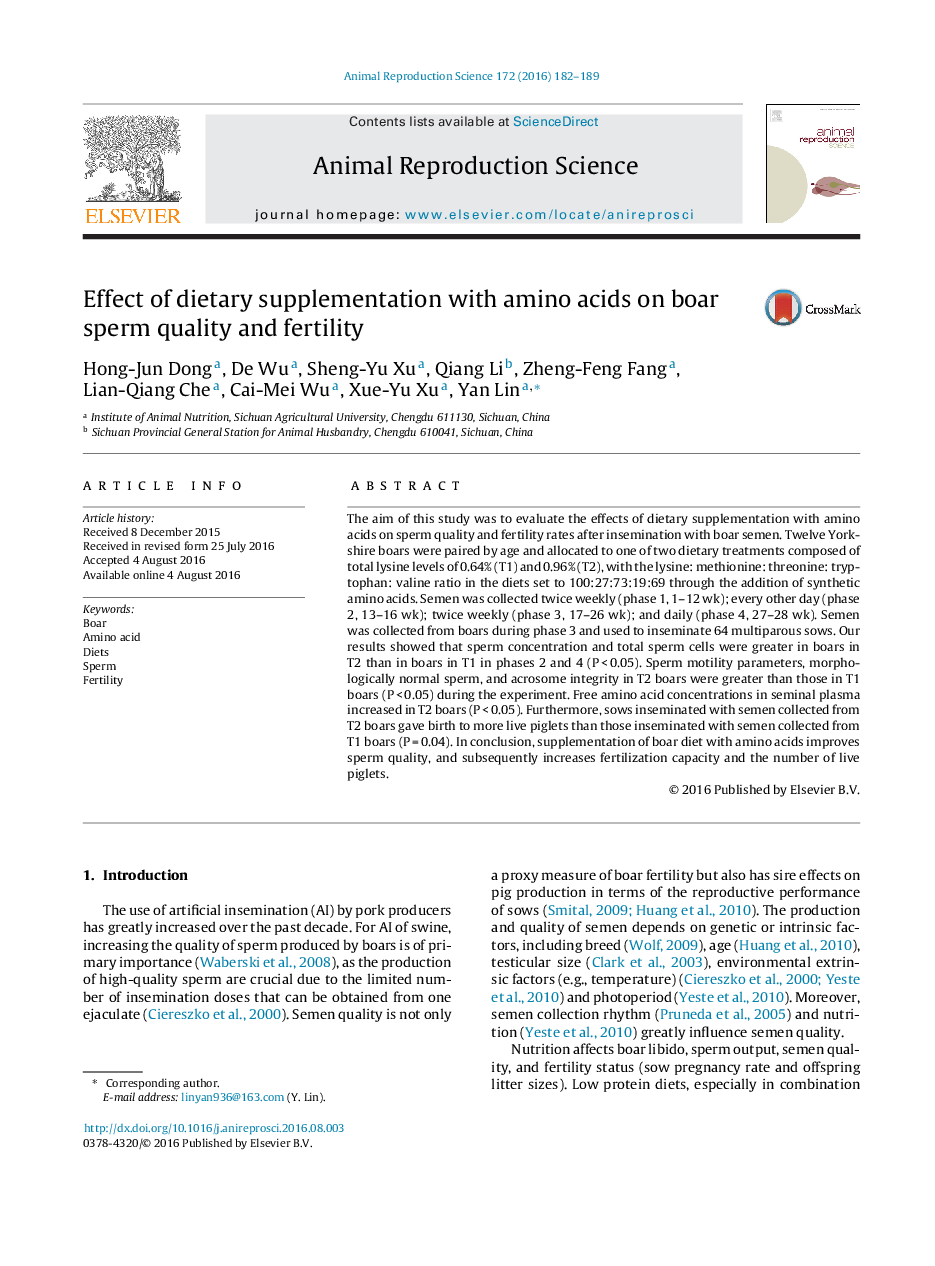| Article ID | Journal | Published Year | Pages | File Type |
|---|---|---|---|---|
| 2072439 | Animal Reproduction Science | 2016 | 8 Pages |
The aim of this study was to evaluate the effects of dietary supplementation with amino acids on sperm quality and fertility rates after insemination with boar semen. Twelve Yorkshire boars were paired by age and allocated to one of two dietary treatments composed of total lysine levels of 0.64% (T1) and 0.96% (T2), with the lysine: methionine: threonine: tryptophan: valine ratio in the diets set to 100:27:73:19:69 through the addition of synthetic amino acids. Semen was collected twice weekly (phase 1, 1–12 wk); every other day (phase 2, 13–16 wk); twice weekly (phase 3, 17–26 wk); and daily (phase 4, 27–28 wk). Semen was collected from boars during phase 3 and used to inseminate 64 multiparous sows. Our results showed that sperm concentration and total sperm cells were greater in boars in T2 than in boars in T1 in phases 2 and 4 (P < 0.05). Sperm motility parameters, morphologically normal sperm, and acrosome integrity in T2 boars were greater than those in T1 boars (P < 0.05) during the experiment. Free amino acid concentrations in seminal plasma increased in T2 boars (P < 0.05). Furthermore, sows inseminated with semen collected from T2 boars gave birth to more live piglets than those inseminated with semen collected from T1 boars (P = 0.04). In conclusion, supplementation of boar diet with amino acids improves sperm quality, and subsequently increases fertilization capacity and the number of live piglets.
